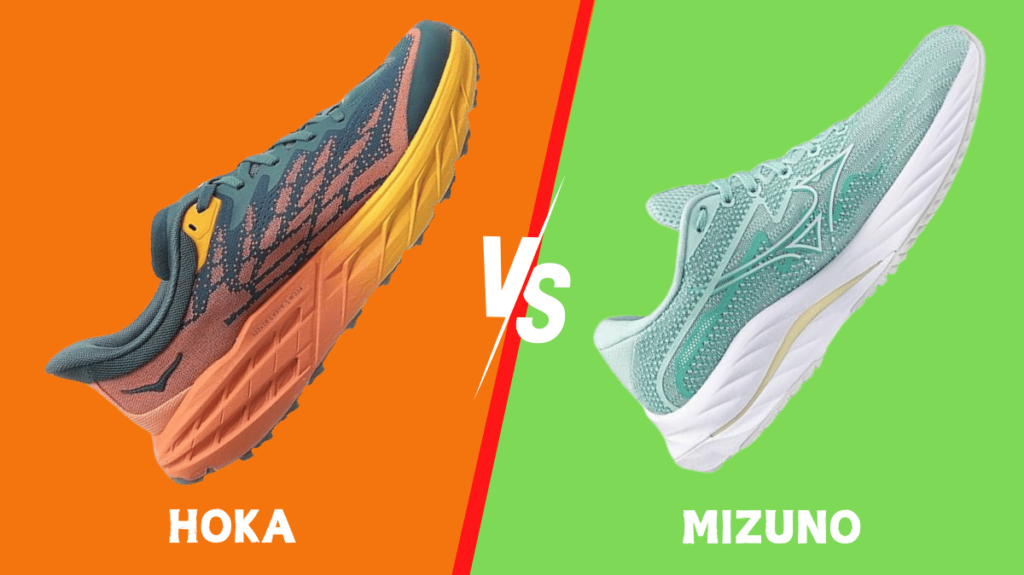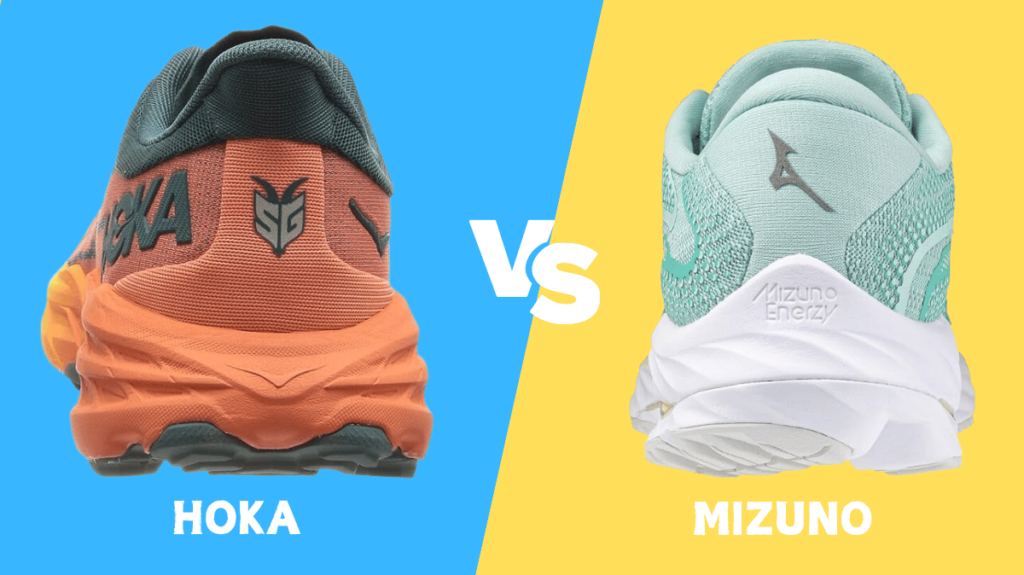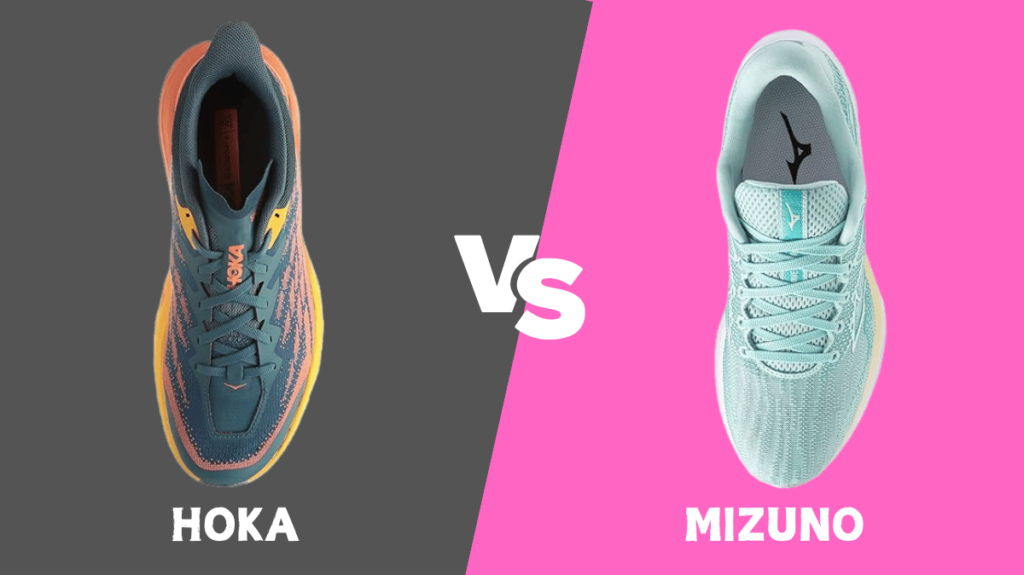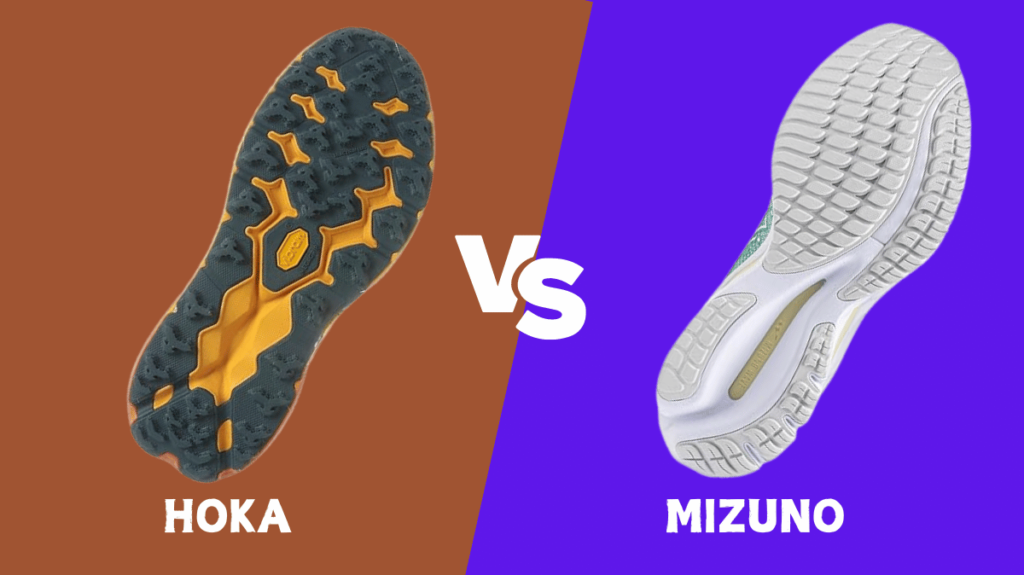Physical Address
304 North Cardinal St.
Dorchester Center, MA 02124
Physical Address
304 North Cardinal St.
Dorchester Center, MA 02124
When it comes to running shoes, two popular brands often come up: Hoka and Mizuno. Both have their own unique features and benefits that can make choosing the right pair a bit tricky. In this article, we’ll dive deep into these two brands, covering everything from comfort and design to pricing and customer reviews. Whether you’re a beginner or a seasoned runner, this guide will help you make an informed decision!

| Feature | Hoka | Mizuno |
| Comfort | Plush, cloud-like cushioning | Balanced, responsive feel |
| Style | Chunky, bold designs | Sleek, classic designs |
| Weight | Heavier, bulkier | Lighter, more agile |
| Target Audience | Long-distance runners | Versatile runners |
| Fit Type | Roomy toe box | True to size, may be narrow |
| Breathability | Good, but limited airflow | Excellent airflow |
| Durability | Moderate, compresses over time | Long-lasting, high-quality |
| Support | Excellent support | Very good support |
| Price Range | $130 – $200 | $100 – $180 |
| Customer Feedback | Very positive, some find bulky | Mostly positive, some find narrow |
Hoka shoes are famous for their plush cushioning. The thick midsoles provide a soft landing, which can be especially beneficial for runners who put in a lot of miles. Many runners describe Hoka shoes as “cloud-like” because they absorb shock effectively. This feature can help reduce fatigue during long runs.
Mizuno focuses on a balance between cushioning and responsiveness. Their shoes often use a technology called Wave Plate, which helps distribute impact forces evenly. This means you get comfort without losing that energizing bounce in your step. For runners looking for a responsive feel, Mizuno is a great option.
| Feature | Hoka | Mizuno |
|---|---|---|
| Cushioning | Plush and soft | Balanced and responsive |
| Shock Absorption | Excellent | Good |
| Overall Feel | Cloud-like | Energizing |
Hoka shoes are known for their unique, chunky appearance. The oversized midsoles and bold colors set them apart from traditional running shoes. While some people love this distinctive look, others may find it less appealing for casual wear.
Mizuno shoes tend to have a more classic running shoe appearance. They feature sleek designs and come in a variety of colors that can fit well with different athletic outfits. If you’re looking for something that looks more traditional, Mizuno might be the way to go.
| Feature | Hoka | Mizuno |
|---|---|---|
| Design | Chunky and bold | Sleek and classic |
| Color Options | Vibrant and diverse | Subtle and varied |
Hoka emphasizes maximum cushioning for comfort, while Mizuno aims for a balance between cushioning and responsiveness.
Hoka shoes are generally heavier due to their thick cushioning, whereas Mizuno offers lighter options for those who prefer a more minimal feel.
Hoka is popular among long-distance runners and those seeking extra support, while Mizuno appeals to runners looking for a versatile shoe for various distances.

Hoka shoes are often noted for their roomy toe box, which provides ample space for toes to splay. However, some users suggest that they may run a bit large, so trying them on is essential.
Mizuno shoes typically fit true to size, but they may feel narrow for some. If you have wider feet, it’s advisable to check their specific models for fit.
| Feature | Hoka | Mizuno |
|---|---|---|
| Fit Type | Roomy toe box | True to size, may be narrow |
| Width Options | Limited | More options available |
Hoka is relatively newer in the running shoe market but has gained popularity quickly, especially among ultra-marathoners and casual runners. They are well-regarded for innovation and comfort.
Mizuno has been in the running shoe business for decades and has built a strong reputation for quality and performance. Many elite runners trust Mizuno shoes for races and training.
Hoka uses breathable mesh materials in many of its models, allowing for good airflow. However, the thick cushioning can sometimes limit ventilation.
Mizuno often incorporates engineered mesh uppers that enhance breathability without sacrificing support. This feature helps keep feet cool during long runs.
| Feature | Hoka | Mizuno |
|---|---|---|
| Material | Breathable mesh | Engineered mesh |
| Ventilation | Good | Excellent |

Hoka shoes are built to last, but the cushioning can compress over time. They typically perform well for many miles, but heavy users may need to replace them sooner than other brands.
Mizuno is known for its durable construction, often using high-quality materials that withstand wear and tear. Many runners find their Mizuno shoes last longer than average.
| Feature | Hoka | Mizuno |
|---|---|---|
| Material Quality | High | Very high |
| Lifespan | Moderate | Long-lasting |
Hoka shoes offer a unique fit with their wide toe box, making them suitable for runners with wider feet or those who prefer extra space. The cushioning provides support without being overly restrictive.
Mizuno shoes offer a snug fit that many runners appreciate. They provide excellent support, especially for runners with a neutral gait, thanks to their Wave Plate technology.
| Feature | Hoka | Mizuno |
|---|---|---|
| Toe Box | Wide | Snug |
| Support Level | Excellent | Very good |
Hoka shoes generally fall into the mid to high price range. While they may be more expensive, many runners find the comfort and quality worth the investment.
Mizuno offers a range of prices, often providing more budget-friendly options alongside their premium models. This variety makes them accessible to different types of runners.
| Feature | Hoka | Mizuno |
|---|---|---|
| Price Range | Mid to high | Budget to high |
| Average Price | $130 – $200 | $100 – $180 |
Customers often praise Hoka shoes for their comfort and cushioning, especially for long-distance running. However, some users mention that they can feel bulky.
Mizuno receives positive feedback for its responsive feel and durability. Many runners appreciate the classic design and solid performance in various conditions.
| Feature | Hoka | Mizuno |
|---|---|---|
| Customer Feedback | Very positive | Mostly positive |
| Common Complaints | Bulky feel | Narrow fit for some |

Choosing between Hoka and Mizuno ultimately depends on your personal preferences and running style. Hoka is fantastic for those seeking plush comfort and support, especially for long distances. On the other hand, Mizuno offers a blend of cushioning and responsiveness, making it a versatile choice for various runners. Both brands have their strengths, so consider trying on different models to see which fits your needs best!
Hoka is often preferred for long-distance running due to its superior cushioning.
Hoka shoes are generally heavier due to their thick midsoles, but many runners find the comfort worth it.
Yes, Mizuno shoes typically fit true to size, but some models may feel narrow.
Hoka shoes usually last around 300-500 miles, depending on the runner’s weight and running style.
Yes, Mizuno has specific models designed for trail running, offering great traction and support.